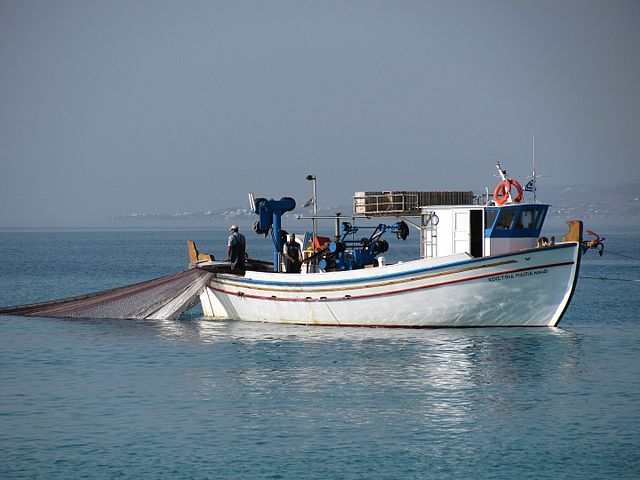 By Coty Perry
By Coty Perry
We hear the word “sustainability” used all the time. We use it to talk about pollution, emissions, waste management, and much more.
One topic that is often overlooked when it comes to sustainability is the food chain. Most importantly, the top of the food chain.
Commercial fishing is a billion dollar industry with the most recent studies showing a $144 billion dollar revenue.
The industry continues to grow year after year and this is due to a sharp increase in the amount of fish we consume. We’re consuming more than double the amount of fish we did 50 years ago. Why is that?
While there is little evidence to tell us “why” we believe it’s due to more knowledge around healthy food choices and more Westerners relying on fish as a primary source of protein.
The sad reality is, that a lot of the fish we consume isn’t “healthy” or better for you in any way due to the process of getting it from the water to your plate.
What is the root cause of these issues?
We believe overfishing is to blame. It results in a lower quality product, it wreaks havoc on the environment, and it destroys the ecosystems fish need to survive, thrive, and reproduce.
Let’s break down some of these details to make them easier to absorb.
Why is Overfishing a Problem?
Let’s start with a few alarming statistics.
- There are 460 fishing stocks in the world and 323 of them are considered “overfished.”
- As much as 90 percent of the total fish supply in the world has been depleted.
- 4,600 sea turtles are killed by fishing nets and hooks each year in the U.S. alone.
We could go on and on.
Overfishing is a problem because it depletes the stock of natural wild caught fish available in the world. The main driving factor behind the fishing is the demand. It’s a natural response and not enough regulations are put in place to prevent it.
In many cases, Western countries like the United States and Canada have these regulations in place but they’re unable to enforce them. Ships operate off the books with illegal crews and fish waters where they cannot be tracked.
The Consequences of Overfishing
There are some serious consequences that we face as a planet due to aggressive and belligerent overfishing. Some of these are:
Algae Surplus – We hear a lot about the positive effects of algae on the aquatic ecosystem, but the algae has become too much because of the lack of fish in the water to consume it.
Destruction of Communities – Commercial fishing creates a lot of jobs but overfishing destroys them. Small island nations and communities along the water rely on fishing as their only way to make money. They cannot match the price or the volume of these mega ships that come in and catch all the fish they need to survive.
Ghost Fishing – As previously mentioned, thousands upon thousands of marine animals die each year as a result of abandoned gear like fishing nets, traps, and hooks. Getting caught in or consuming something like this is a death sentence for turtles, dolphins, and other animals that wouldn’t otherwise be caught.
How Do Commercial Fisheries Get Away With It?
This is a question we get a lot and it’s a tough one to answer. Unfortunately, the main reason why overfishing has become such an issue is due to government subsidies. The governments of the world pump out more than $35 billion dollars a year to fishermen.
So, the power put in place to prevent overfishing is actually the root cause of it. These subsidies are directed towards reducing and offsetting costs like fuel, gear, and labor. But, in reality, all it does is promote illegal activity and allow vessels to capture fish faster than the environment can recover.
What Are The Alternatives?
If we’re not fishing beyond sustainable rates, what could we do? What other options are there? Innovation and technology is first. Companies like Fishtek Marine are using technology to help prevent sea creatures from getting stuck in nets and traps.
There are also technological advancements in place to help keep better track of fishing vessels and penalize the ones who are fishing illegally.
Unfortunately, in most cases, regulations simply do not work. They’re not enough to prevent countries from pushing their limits and quotas actually create more waste because fishermen simply discard smaller fish in favor of larger catches.
We have to support sustainable fishing efforts however possible but the solution was never meant to be simple. Overfishing needs to become more of a mainstream topic because once the fish are gone, they’re gone.
It all starts with awareness and each one of us can do our part by sharing useful information and supporting the cause.
To learn more, check out the full report on overfishing, over at Anglers.
Coty has spent the better part of his life bass fishing and observing the habits and behaviors of people who consider themselves “outdoorsmen.” For the past few years, he has focused much of his time on spreading awareness of overfishing and its consequences.



Leave a Reply